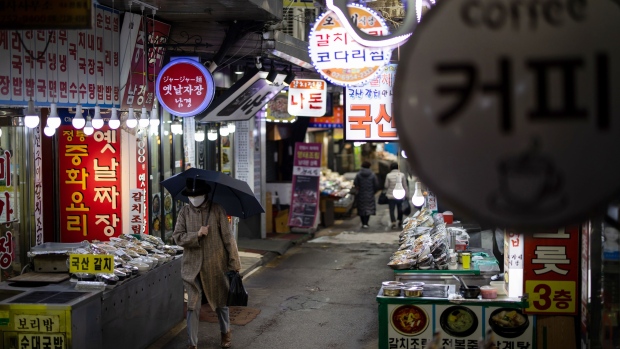Jul 1, 2020
South Korea Inflation Fails to Rise as Pandemic Drags on
, Bloomberg News

(Bloomberg) -- South Korean consumer prices failed to rise, adding to growing evidence that deflationary pressures are setting in.
Consumer prices were unchanged in June from a year earlier, data from the statistics office showed Thursday. Economists had expected a 0.2% decline.
Prices failed to increase despite the government’s cash handouts to households. Any boost in sentiment may have been countered by the emergence of new virus clusters last month that have made people cautious about venturing out.
South Korea has long suffered low inflation but managed to avoid a prolonged spell of falling prices. This may no longer be the case if the pandemic persists.
Key Insights
- Thursday’s data may put pressure on the Bank of Korea to do more. BOK Governor Lee Ju-yeol said last month he expects consumer prices to stay around 0% for the time being. For the full year, the central bank forecasts inflation slowing to 0.3% and gross domestic output shrinking 0.2%.
- The deteriorating job market is likely to be weighing on prices. Hundreds of thousands of jobs have been shed in recent months, especially in retail and other service businesses. The government has pledged tens of trillions of won to create employment in industries such as technology and renewable energy.
- South Korea flattened the infection curve months ago, but dozens of new cases are still being reported each day with clusters detected in the metropolitan area around Seoul. The government is tweaking its social distancing rules to try to stem new waves while keeping the economy open.
- Rebounds in other major economies as lockdowns ease would support inflation in trade-reliant South Korea.
©2020 Bloomberg L.P.